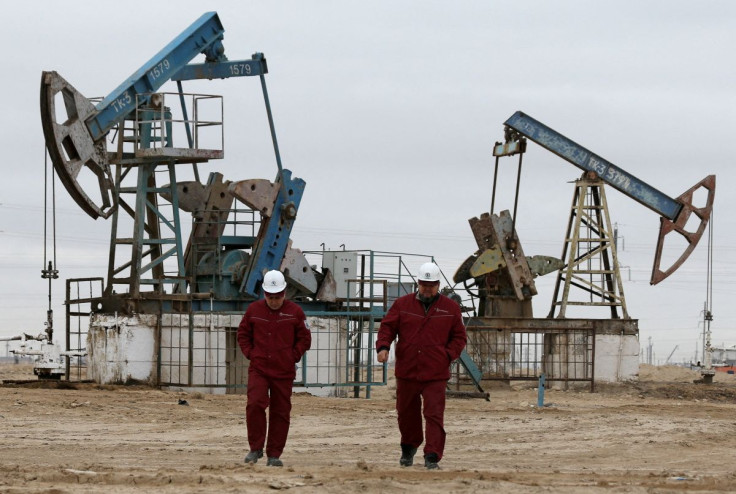Oil Rises As Supply Concerns Persist

Oil prices climbed for a third straight session on Friday, shrugging off concerns about global economic growth as impending European Union sanctions on Russian oil raised the prospect of tighter supply.
Brent futures rose 85 cents, or 0.77%, to $111.75 per barrel by 1346 GMT, while U.S. West Texas Intermediate (WTI) crude climbed 72 cents, or 0.67%, to $108.98 a barrel.
Both contracts were up over $2/bbl earlier in the session, and are on track to rise for a second consecutive week, buoyed by the EU's proposal to phase out supplies of Russian crude oil in six months and refined products by the end of 2022. It would also ban all shipping and insurance services for transporting Russian oil.
The EU is tweaking its sanctions plan in a bid to win over reluctant states, three EU sources told Reuters on Friday.
"The looming EU embargo on Russian oil has the makings of an acute supply squeeze. In any case, OPEC+ is in no mood to help out, even as rallying energy prices spur harmful levels of inflation," PVM analyst Stephen Brennock said.
Ignoring calls from Western nations to hike output more, the Organization of the Petroleum Exporting Countries, Russia and allied producers, a group known as OPEC+, stuck with its plan to raise its June output target by 432,000 barrels per day. nL2N2WX0IO]
However, analysts expect the group's actual production rise to be much smaller as a result of capacity constraints.
"There is zero chance of certain members filling that quota as production challenges impact Nigeria and other African members," said Jeffrey Halley, senior market analyst Asia Pacific at OANDA.
A U.S. Senate panel has advanced a bill that could expose OPEC+ to lawsuits for collusion on boosting oil prices.
Investors are also eyeing higher demand from the United States this fall as Washington unveiled plans to buy 60 million barrels of crude for its emergency stockpiles.
Demand concerns on signs of a weakening global economy capped the price rise.
The Bank of England on Thursday warned that Britain risks a double-whammy of a recession and inflation above 10% as it raised interest rates to their highest since 2009, hiking by a quarter of a percentage point to 1%.
And strict COVID-19 curbs in China are creating headwinds in the second quarter for the world's second-largest economy.
© Copyright Thomson Reuters 2024. All rights reserved.





















